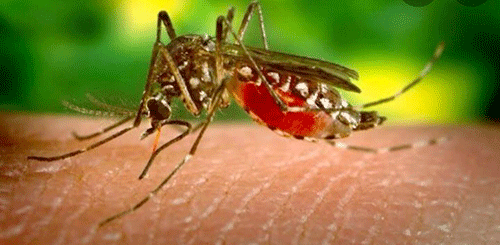The Southern African Development Community last month welcomed the approval of the first malaria vaccine called Mosquirix by World Health Organisation as a breakthrough to accelerate plans to eliminate malaria in the region and the rest of the world.
Malaria Day – as part of SADC Malaria Week – is commemorated annually on 6 November and aims to raise awareness about the disease and rally the malaria-endemic community to play its part in the drive towards malaria elimination.
South Africa’s minister of health, in his capacity as the chairperson of the Southern African Development Community`s malaria Elimination Eight Initiative (E8) Ministerial Committee, Dr Joe Phaahla has described the approval as a breakthrough.
After more than three decades of research and development in searching for a malaria vaccine, WHO has made a historic recommendation to endorse and scale up manufacturing and deployment of the first-ever promising malaria vaccine for children under the age of five years in regions with moderate to high plasmodium falciparum malaria transmission.
According to Phaahla, the Mosquirix vaccine, which is scientifically known as RTS,S/AS01, is a significant addition to the current set of complementary malaria prevention tools available to higher burden malaria endemic countries.
“We see this malaria vaccine as a landmark development in the history of the fight against the spread of this deadly infectious disease, which kills about half a million people every year including 260 000 children below the age of five years, most of them in sub-Saharan Africa,” said Phaahla.
The development of the first-generation vaccine against a human parasite is a huge achievement. Parasites are much more complex than viruses or bacteria, and many scientists have been working towards this goal for over 30 years.
Namibia last week rolled out an indoor residual spraying (IRS) campaign in 21 targeted malaria endemic districts to combat malaria in Namibia.
The country has achieved a remarkable decline in malaria cases over the past decade.
In 2020, Namibia recorded over 13 600 confirmed malaria cases and over 40 malaria deaths. The Kavango East, Kavango West, Ohangwena and Zambezi regions collectively accounted for 85% of cases and deaths.
The spraying campaign, which is conducted yearly between September and December just before the rainy season and the malaria peak season, will this year cover nine regions, namely Ohangwena, Oshikoto, Kavango East, Kavango West, Otjozondjupa, Omusati, Kunene, Oshana and Zambezi.
The E8 is a coalition of eight countries working across national borders to eliminate malaria in Southern Africa by the year 2030. It was formed to serve as the malaria response arm of the SADC region.


